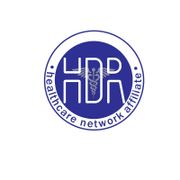
About 30% of American adults have allergies. Allergies result from your immune system’s response to substances it deems harmful (allergens), such as pollen or pet dander. Your immune system creates antibodies to respond to allergies. During this process, you may experience uncomfortable symptoms, including inflammation in your skin and sinuses. In addition to consulting your family doctor about seasonal sneezing and itching, consider these tips for managing allergies.
How to Reduce Allergies
1. Minimize Exposure to Allergens
Consult your family doctor about the allergens that are causing you discomfort, and then take steps to minimize your exposure. For example, if you suffer from a pollen or ragweed allergy, go online to check for local pollen forecasts.
When high counts are forecasted, minimize time outdoors and close doors and windows. If you do go outside, wear an allergy mask to prevent allergens from entering your system. Also, change your clothes when you go inside and shower promptly to remove allergens from your skin.
2. Make Your Home Allergy-Proof
If you don’t already have one, add a HEPA filter to your home’s HVAC system. It traps allergens in fine mesh, keeping you from inhaling them. To keep allergens from thriving in your home, keep humidity at around 50%. Pollen travels easily in dry air, whereas mold loves moisture, so maintaining a balance is key; depending on your local environment, you might need a humidifier or dehumidifier to do so.
 To keep allergens from lingering or proliferating in your home, create a weekly cleaning schedule. Vacuum carpets and mop wood; use a microfiber cloth on surfaces such as tables and windowsills to catch finer particles. Declutter your home to eliminate additional surfaces where allergens may settle.
To keep allergens from lingering or proliferating in your home, create a weekly cleaning schedule. Vacuum carpets and mop wood; use a microfiber cloth on surfaces such as tables and windowsills to catch finer particles. Declutter your home to eliminate additional surfaces where allergens may settle.
3. Test Out Treatment Options
Alleviate your allergy symptoms by trying out different over-the-counter medications. Antihistamines, such as loratadine, can relieve sinus and eye inflammation for the whole day. Decongestants are another effective medication and relieve nasal congestion. Alternatively, purchase a medication that contains both antihistamines and decongestants to relieve multiple, severe symptoms.
If over-the-counter medications aren’t bringing you the relief you seek, ask your family doctor about getting to the source of your discomfort with an allergy shot; throughout the treatment, you’ll be exposed to the allergens causing you discomfort to build immunity and thus reduce symptoms in the future.
For a trustworthy family doctor, join HDR Healthcare Network in the Bronx, NY. Through their network of urgent care centers and medical clinics, they provide a range of medical services, including pediatric and cardiological care. Call (718) 617-2500 with your health needs. Read more about their reputable services online.
About the Business
Have a question? Ask the experts!
Send your question

